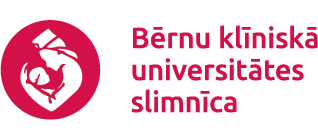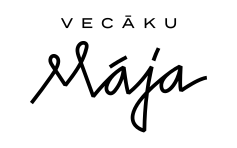Children with autism spectrum disorders and their parents will be supported more!

In November 2017, the Children’s Hospital Foundation together with the Children’s Hospital specialists opened the first in Latvia autism-consulting room and created the website www.autismsberniem.lv. Since last year, the autism-consulting room offers free training for the parents of autistic children and online advice of autism professionals via Skype, Whatsupp and Messenger. In 2018, donations helped the Children’s Hospital Foundation conduct free diagnostics, using ADOS test, for 47 children and organize therapeutic treatment for 58 children. The Children’s Hospital Foundation spent a total of nearly 110 thousand euro to support the children with ASD in 2018.
“We are happy that we were able to help so many children during the first year of our existence and to explain to the society what in reality this diagnosis means and what support the children and their families need. We have also learnt much, thus improving the autism-consulting room and starting training for the parents. We regularly receive requests from the parents, asking for therapeutic treatment recommended by their consulting physician, which is not state funded. It is very important that the children continue therapy after reaching the first results, aiming to complete the entire therapeutic program,” Liene Dambina, Head of the Children’s Hospital Foundation commented on the situation. She has also informed that most of donations were granted to these children within the framework of the charity event Angels above Latvia, and that this year more than 50 children with ASD asked for support to undergo this therapy, including messengers of the campaign - a seven-year old Kristers and a five-year old Diana. The campaign will continue up to 31 January and everyone is welcome to help the children to undergo necessary treatment this year!” L. Dambina called for supporting the children.
Over 187 parents got help at the autism-consulting room
The autism-consulting room has been functioning for more than one year as an open-type room at the Children’s Hospital in Gailezers where parents and care-givers, who bring up the children with autism spectrum disorders (ASD), are offered free medical advice and psychological aid. Assistance was rendered to 187 parents, but in view of the fact that many people residing outside Riga are physically unable to visit this room, they were offered to get online medical advice via Skype, Whatsupp or Messenger. Parents can apply for online medical advice at the Record Department, making an appointment on the exact date and at the exact time, specifying that they need online medical advice and a platform through which they would like to contact a specialist.
“Beginning from October 2018, parents, grandparents or other persons caring for ASD children will be offered free training sessions organized by the specialists of the Children’s Hospital to supplement their knowledge of alternative and augmentative communication and to learn how to make and correct their child recovery plan. Up to now, we have conducted two session cycles highly appreciated by the parents, thus motivating us to move on. It is very important that thanks to the Children’s Hospital Foundation we can organize training sessions free of charge, supporting all parents of the children regardless of their financial situation,” said dr. Anete Masalska, Chief Physician at the Psychiatry Department of the Children’s Clinical University Hospital.
Two training session cycles for parents are organized free of charge
Our everyday practice shows what interests the children’s parents most of all and what problems they experience, so we decided to create two cycles of training sessions. To improve the parents’ knowledge of alternative communication methods, augmentative communication, it is enough to attend 5 sessions of Evija Puge, Audio Speech Therapist of the Children’s Clinical University Hospital: 1. Theoretical review of alternative communication, its significance in every day activity, PECS (Picture Exchange Communication System), etc.; 2. Training session - clothes, self-service; 3. Training session – food, eating, eating utensils, verbs related to this aspect; 4. Training session - daily routine. Verbs, activity images; 5. Training session – prohibition signs, symbols, when to use these images, analysis of situations.
The goal of the second cycle of training sessions is to supplement knowledge of the parents and care-givers regarding methods how to help themselves to properly evaluate their children’s needs and the way they feel, to explain how to make and correct their children recovery plan based on the real needs. This cycle of 5 training sessions was created by Anna Gubermane, Special Pedagogue at the Children’s Clinical University Hospital. The cycle will help to learn and understand 1. What we know about autism, peculiarities of inquiring activities, testing and planning. Brief description of modern concepts. 2. General principles for creation of new skills and practices of a child (behaviour impulse, motivation of a child through the “token economy”), basic principles for behaviour regulation for the children with ASD; 3. Strategies, helping maintain development of communicative skills (games, general interaction principles); 4. Undesirable behaviour (sensorial information processing disorders; negative behaviour as consequences of communication difficulties); 5. Emotional regulation (social stories, five-grade scale for improvement of emotional self-control – visual methods). Methods helping children regulate their behaviour independently.
Both cycles of training sessions are available now. They turned to be an actual support for over 30 parents, helping acquire new knowledge and skills in the aspects of childcare.
Please register to attend free training sessions, calling the Day Patient Department of the Children’s Clinical University Hospital Gailezers at 25680043.
As the global statistics shows, on average 0,7% of the population are with ASD, therefore, in view of the number of children in Latvia, in 2017 there would be about 2000 children to 18 years of age with ASD, but at the end of 2017 only 530 children with ASD were registered. One of the reasons is limited access to diagnostics due to high costs and lacking specialists.


